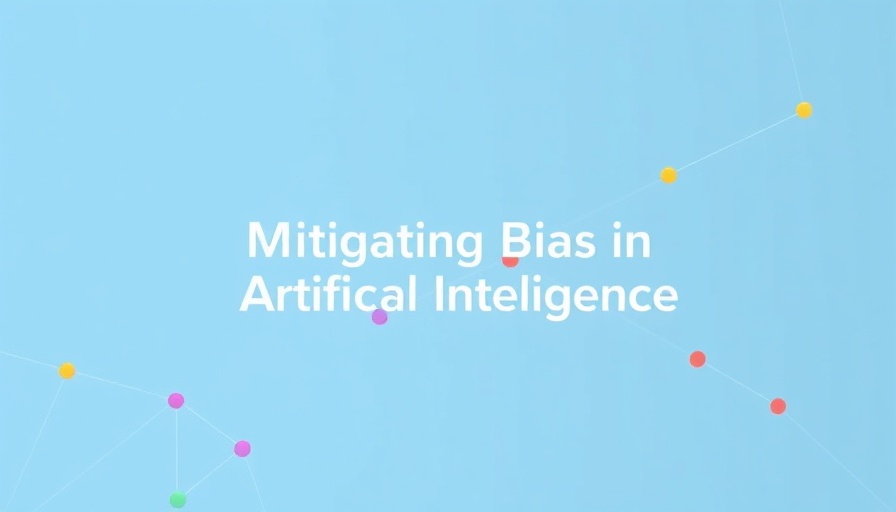
Understanding the Importance of AI Bias Mitigation
The fascinating potential of artificial intelligence (AI) is vast and dynamic, shaping how decisions are made across countless aspects of our lives. Yet, the growing integration of AI in decision-making has brought to light a critical challenge: bias. Seminal research from the University of California, Berkeley's Haas School of Business, led by Genevieve Smith and Ishita Rustagi, unveils the importance of addressing AI biases with their newly released Playbook on Mitigating Bias in AI.
This pioneering document underscores the critical necessity of tackling biases to enable business leaders to unlock AI’s transformative power equitably and responsibly. By understanding why bias emerges, acknowledging its impacts, and implementing data-driven strategies, stakeholders can effectively minimize these risks.
Historical Context of AI Bias
The journey of AI from conceptual frameworks to practical applications has been marked by the mixed blessing of human influence. Historically, biases in AI systems often originate from the data they are trained on—data that mirror human prejudices and societal inequities. This history explains why AI can sometimes perpetuate these biases, which is critical for comprehending the playbook's significance.
As AI continues to evolve, learning from historical missteps is imperative to prevent predictable inaccuracies and partiality from becoming embedded at scale in systems crucial to decision-making, showing how the past influences present AI challenges.
Future Trends in AI Ethics
Futuristic insights into AI suggest a world where ethical AI practices are not just preferred, but mandated. As AI technology becomes increasingly indispensable, the demand for accountable and transparent AI systems will grow. Business leaders, tech developers, and policymakers must anticipate these shifts and adapt accordingly.
This playbook serves not only as a guide but also as a visionary document encouraging industries to prepare for these inevitable changes. By addressing biases proactively, stakeholders can ensure AI innovations benefit society inclusively.
Diverse Perspectives on Bias Mitigation
While the playbook advocates evidence-based strategies to mitigate bias, it’s vital to consider diverse perspectives in the ongoing discourse about AI ethics. Some experts argue for more stringent regulations, while others suggest a focus on technological solutions like fairness-enhancing algorithms.
Such varied viewpoints highlight the complexities involved in balancing technological advancement with ethical responsibility. Engaging with different opinions ensures a multi-faceted approach to creating equitable AI systems.
Unique Benefits of Embracing This Knowledge
Understanding AI bias and how to mitigate it empowers individuals and organizations to act with foresight, preventing costly errors and ensuring integrity in AI deployment. These insights are not just theoretical—they have practical implications that guide businesses toward sustainable and unbiased growth, thus enhancing strategic decision-making and reputation management.
The playbook from Berkeley Haas is not just a roadmap for the present but a toolkit for future innovations, encouraging proactive measures that align with ethical guidelines.
 Add Row
Add Row  Add
Add 
 Add Element
Add Element 


Write A Comment